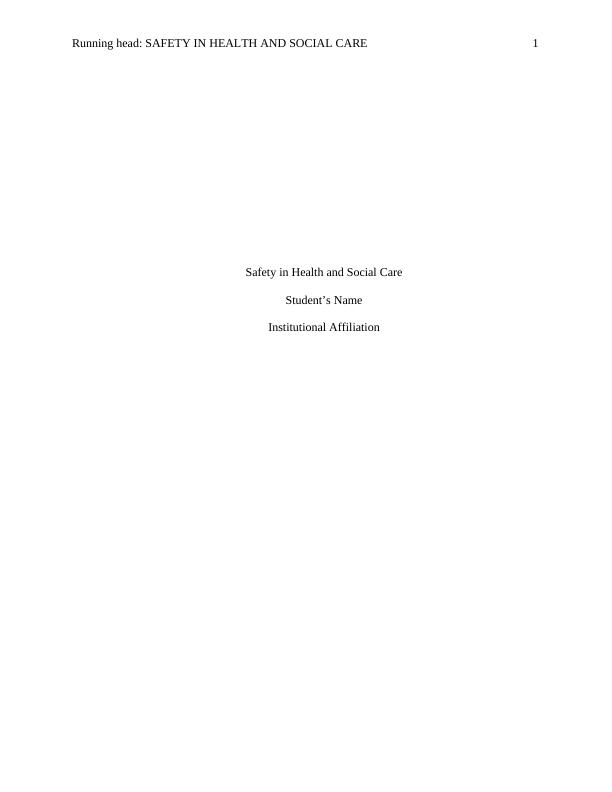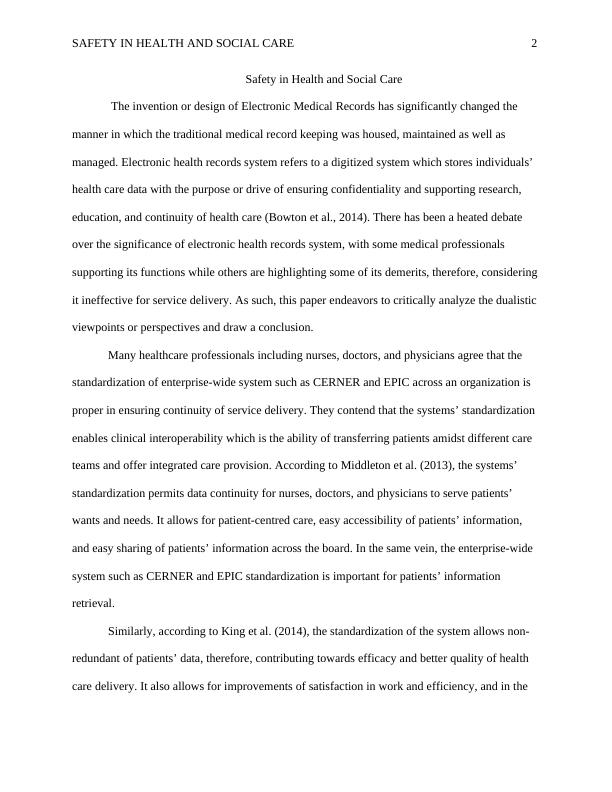Electronic Health Records System: Dualistic Viewpoints
4 Pages893 Words54 Views
Added on 2023-06-11
About This Document
This paper critically analyzes the dualistic viewpoints or perspectives of Electronic Health Records System and draws a conclusion. It highlights the significance of electronic health records system and its demerits, therefore, considering it ineffective for service delivery.
Electronic Health Records System: Dualistic Viewpoints
Added on 2023-06-11
ShareRelated Documents
End of preview
Want to access all the pages? Upload your documents or become a member.
Assignment on Electronic Record-Keeping in Healthcare
|22
|1413
|25
Security of Healthcare System: Components, Best Practices, and Limitations
|14
|3916
|166
Electronic Health Record System
|11
|2666
|30
Standardized Nursing Laguages Assignment
|4
|752
|19
Journal of medical systems
|4
|748
|20
Digital Doctor Reading
|4
|520
|342


